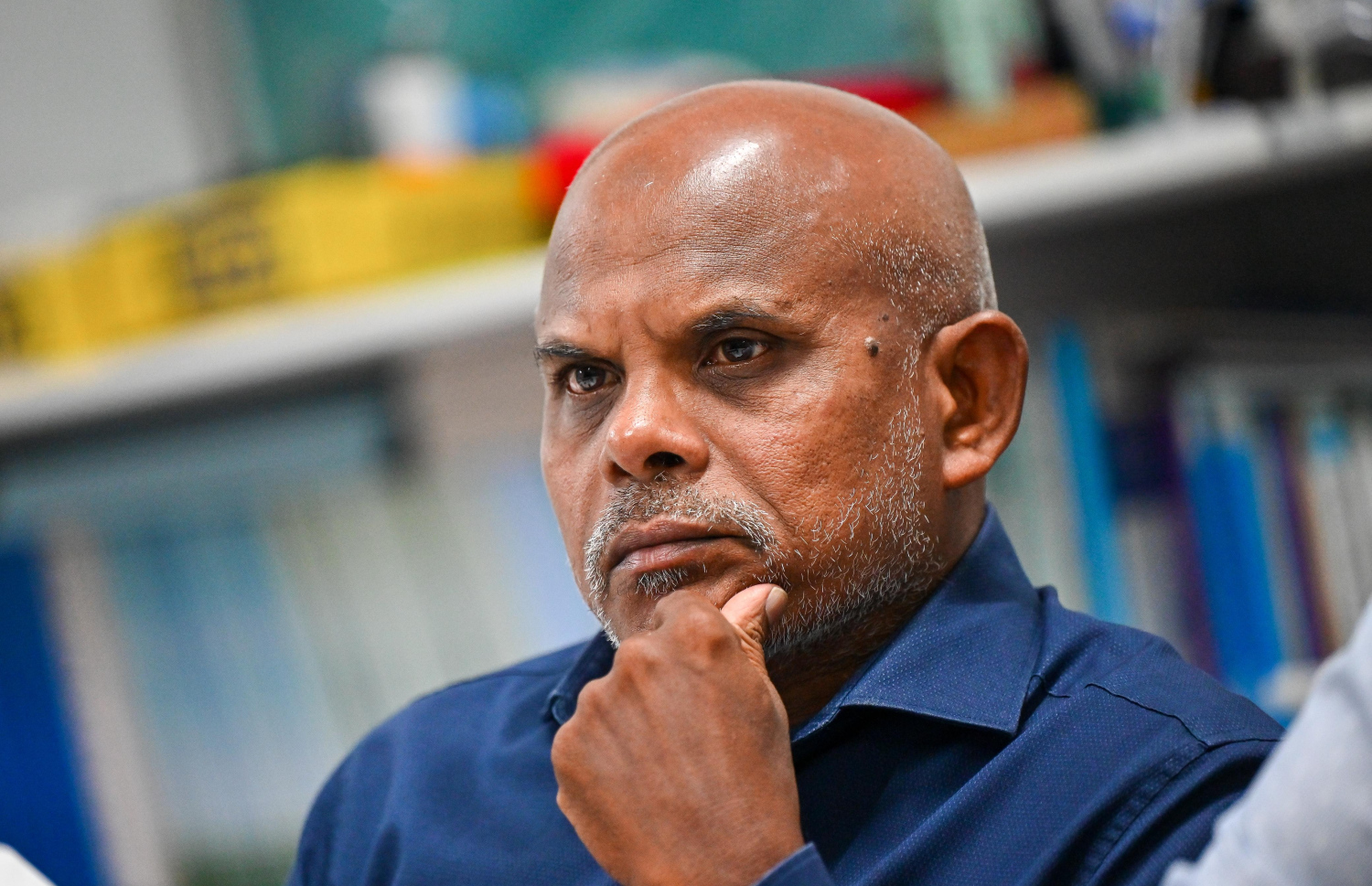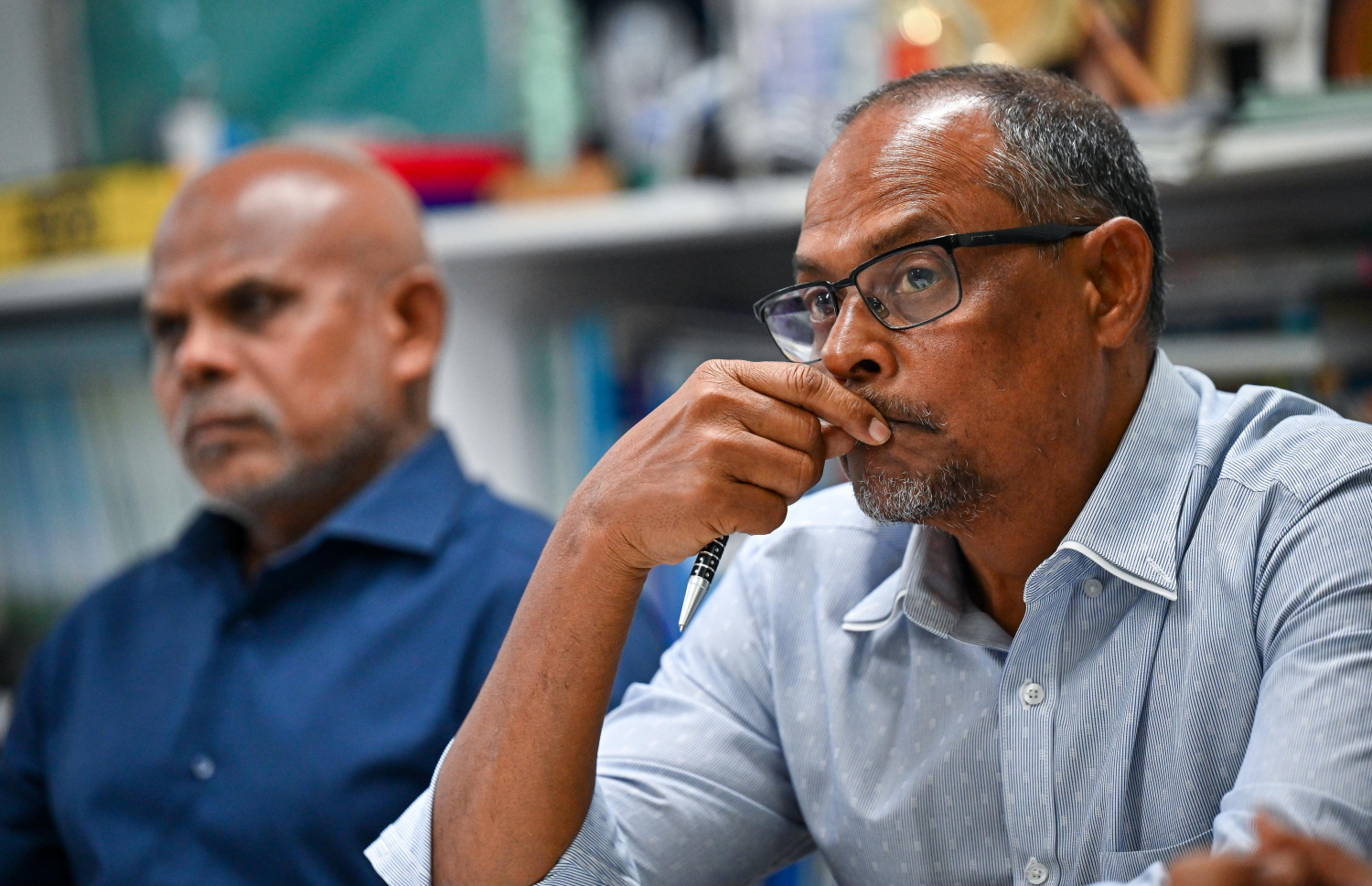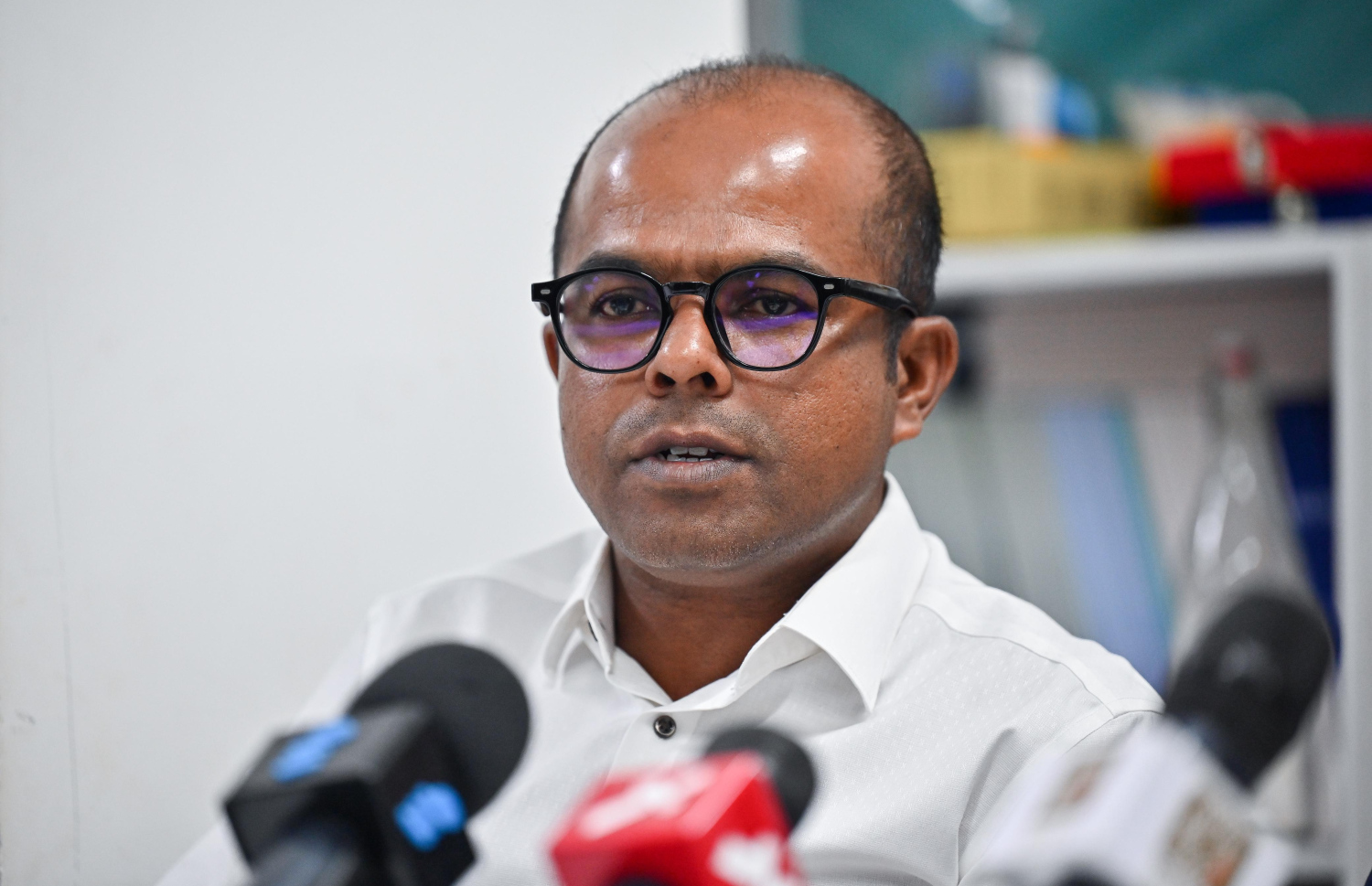Some senior journalists in Maldives have strongly criticized the Media and Broadcasting Regulation Bill, calling it a direct threat to press freedom and constitutional rights.
The bill, introduced in Parliament by B. Thulhaadhoo MP Abdul Hannan, has sparked outrage among media professionals, prompting an urgent call for its full withdrawal.
At a press conference held today, veteran editors and media experts said the bill is designed not to regulate, but to control and suppress independent journalism in the country.
“This is a very scary bill. There’s no way to amend or fix it. It must be withdrawn,” said Dhauru Editor Moosa Latheef.
Moosa argued that the bill not only proposes the creation of a presidentially appointed commission but also lays out a framework that dictates how journalists should operate, effectively stifling editorial independence.
“It’s based on legal frameworks from countries like Malaysia, where press freedom barely exists, this is a big mess. Hidden behind it is an attempt to control free media in Maldives.”Moosa Latheef, Dhauru Editor

“It’s based on legal frameworks from countries like Malaysia, where press freedom barely exists, this is a big mess. Hidden behind it is an attempt to control free media in the Maldives.” Moosa Latheef, Dhauru Editor and recipient of the Honorary Award in Journalism.
Concerns about political influence and censorship
One of the most alarming aspects of the bill, according to journalists, is the proposed media commission, which would include three members appointed directly by the President. While the bill allows journalists to elect some members, those individuals could still be removed by Parliament, currently controlled by the ruling PNC supermajority.
“That gives both the government and Parliament significant power to influence or silence dissenting voices in the media,” journalists warned in a joint statement.

Another provision would give the commission the power to temporarily suspend licenses of news outlets under investigation, and even allow the courts to permanently revoke licenses. Journalists say this could be used to shut down media outlets indefinitely, even without a formal verdict.
“The commission can even enter newsrooms through the police under the excuse of ‘national security,’ which is dangerously vague. This bill isn’t meant to strengthen journalism, it’s meant to put it in the hands of the President.” ” said Adhadhu Editor Hussain Fiyaz Moosa. “
Fiyaz also pointed out that individual journalists could be penalized and forced to apologize for publishing “false information,” though the bill does not clearly define who determines what’s true or false.
“That opens the door to censorship and intimidation. The current system doesn’t have these kinds of punishments. This is entirely new—and completely unacceptable,” he added.
Dhauru Editor Ahmed Zahir (Hiriga), said journalists would not cooperate with the bill or accept any amendments—even if that means imprisonment.
“An MP cannot pass a law that restricts the fundamental rights guaranteed by the Constitution,” Hiriga said.
“This bill is too restrictive. We don’t believe it can be solved by tweaking it here and there. This must be done with the help of external and legal experts. When we make a law, it has to align with the Constitution and the principles of press freedom—not contradict them,” he added.
He also emphasized the importance of consultation with experts and media stakeholders, something the Attorney General had previously promised before drafting any media-related legislation.

Key Issues Highlighted in the Petition and Press Conference
- Presidential appointments to the commission undermine journalistic independence
- Parliament’s power to dismiss elected members puts further pressure on media freedom
- National security clause allows excessive intrusion into media operations
- Ability to withhold or revoke media licenses opens the door to politically motivated shutdowns
- Penalties on individual journalists create a negative effect on reporting
- Lack of clarity on what constitutes “false information” invites abuse
- The bill was drafted without input from journalists or media organizations
Journalists at the press conference said the bill cannot be salvaged and must be withdrawn completely.
“People didn’t vote to have their rights taken away, they voted for a government that respects the Constitution—and that includes press freedom.” said Moosa.
“Even if this bill passes, it won’t succeed in silencing us. Journalists have worked from behind bars before. We’ll continue doing our jobs—with or without this law.” said Fiyaz.
Maldives Media Council and the Maldives Journalists Association have also criticized the bill, aligning with the petition already signed by numerous journalists from across the country.